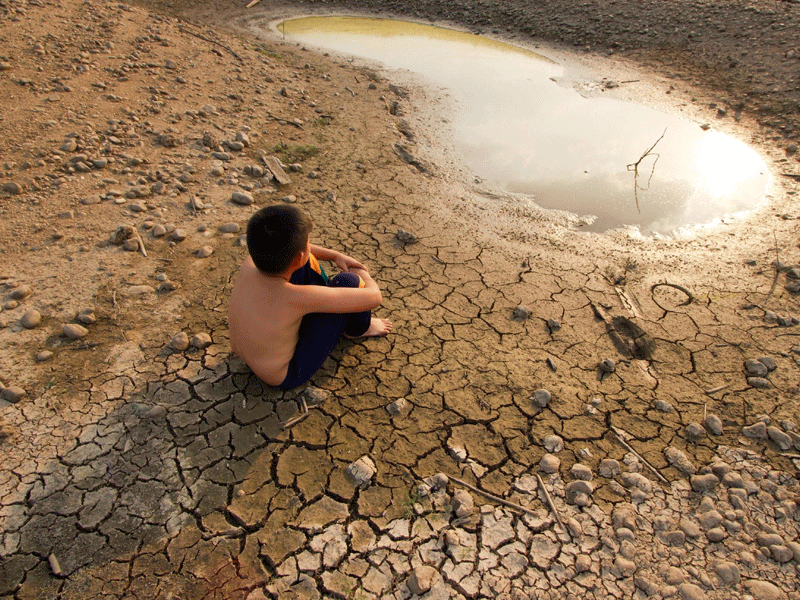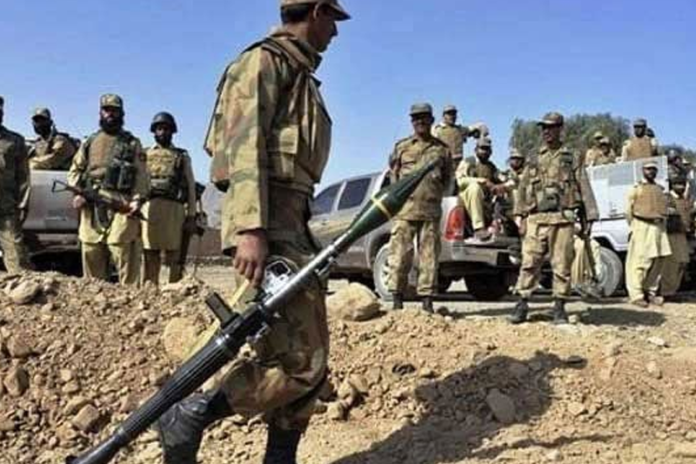Pakistan facing consequences of global warming

- 237
- 0
The alarming results of the upcoming research reports regarding climate change are strongly highlighting the need to take effective measures to prevent global warming at the individual level of the countries and the planet as a whole.
Pakistan has faced the terrible consequences of this global warming in the form of worst floods and disasters last year. Reports coming out this week indicate that 2023 will be the hottest year in recorded history. According to a report, the last 12 months were the hottest in the history of more than 100,000 years.
According to another report, 2023 is virtually certain to be the hottest year on record after five consecutive months of record-breaking temperatures. It has been said that after June the earth remained unusually warm.
Scientists have compared the results of this year's climate change to a disaster movie, with abnormal temperatures, wildfires, powerful storms and devastating floods. Pakistan, which is among the countries most affected by climate change, has been active in various forums in this regard.
Britain's High Commissioner in Islamabad, Jane Marriott, on Thursday praised Pakistan's efforts in establishing a climate disaster relief fund and said that at the UN-sponsored international environmental conference "Coup 28" next month, Loss and The Damage Fund will be a key priority for the UK. The decision to establish the said fund was taken at the "Coop 27" held in Sharm El Sheikh (Egypt). It is expected that this fund will become active and play an important role in dealing with the losses of developing countries like Pakistan affected by the negative effects of climate change.
It may be mentioned here that millions of people were affected in the four provinces of Pakistan due to the floods caused by the unusual and prolonged monsoon rains last year. More than eleven hundred people died in 110 districts while the lives of more than three and a half crore people were affected.
Nine and a half lakh houses were completely or partially destroyed while more than eight lakh cattle were killed. Sindh province was the most affected due to this flood where more than 50 lakh population of 16 districts have been displaced or affected due to flood. More than 400,000 people from 34 districts of Balochistan province were among the victims, while more than 450,000 people were displaced due to rains and floods in eight districts of Punjab province. The number of flood-affected people in 33 districts of Khyber Pakhtunkhwa province was about 50 thousand.
This is a glimpse of the devastation that nature has shown us last year and this year again due to heavy rains in monsoon, flooding is likely to occur.
In recent times, climate change has threatened the survival of many countries as the process of climate change is accelerating and it is having serious consequences on Pakistan.
It is no longer possible for us to ignore the challenges faced in this regard because until some time ago we could only read about the impact of human life due to the rapid melting of glaciers, urban and rural floods caused by rains or such imagery was seen in Hollywood movies. However, now this situation is practically facing us and Pakistan is at the top of the list of countries suffering from climate change.
Therefore, we need to mobilize and spread awareness to tackle the challenge of climate change in every possible way. While this requires action at the federal and provincial governments to local governments, we should also make it part of the curriculum at school level so that our new generation understands and combats climate change.
It should be noted that earlier in 2010, Pakistan had to face a similar situation due to large-scale floods. According to official records, more than 1700 people died in this flood while more than 20 lakh people were directly affected. Due to this flood, crops on 20% of the total cultivable area of the country were destroyed and more than 11 lakh houses were damaged and a total loss of more than seventeen hundred billion rupees was incurred while 1156 billion was spent on reconstruction activities.
Pakistan is geologically located in a region where the effects of climate change are being felt very strongly. Climate change threatens the income, housing, food and security of a large number of Pakistanis. This dire situation can be gauged from the fact that Pakistan is experiencing a higher average temperature than the global average. According to the 2020 ranking released by Risk Index, a system for measuring the level of the highest disaster risk in the world, Pakistan is ranked 18th out of 191 countries. It is worth mentioning here that immediately after the severe floods of 2010, the weather forecasts provided to Pakistan by the European countries on the basis of scientific knowledge said that in the next few years, Pakistan will be more damaged than in the past. What kind of flood situation can be faced but despite this we have not made any adequate preparation to deal with it.
If the manpower of the Govt had been utilized for the construction of dams, cleaning of waterways and reservoirs and all other related efforts, keeping in mind the threats to national security, we might have avoided the disaster, which we faced last year, to a large extent. Similarly, the Foreign Office needs to focus its attention towards making the threats faced by Pakistan due to climate change a major point of diplomacy at the international level so that the international community pays Pakistan compensation for climate disasters. At the same time, it can be induced to reduce the global emission of harmful gases. The sad thing is that between 2010 and 2022, Pakistan's diplomacy was focused on security issues, IMF loans, the situation in Afghanistan or relations with the US and India, and now the Foreign Office should make the threats to Pakistan from climate change the focus of diplomatic efforts. The rulers should understand that Pakistan cannot afford any more delay in this regard.
In recent years, the countries of the region, including Pakistan, are experiencing unusual heat, rains and floods due to climate change. The disaster that happened in the districts of Sindh, Balochistan and South Punjab last year, despite the repeated appeals of the government, due to the lack of assistance from the international community, millions of affected people, children and women are still homeless and suffering from infectious diseases.
Published in The Daily National Courier, November, 14 2023
Like Business on Facebook, follow @DailyNCourier on Twitter to stay informed and join in the conversation.

















































